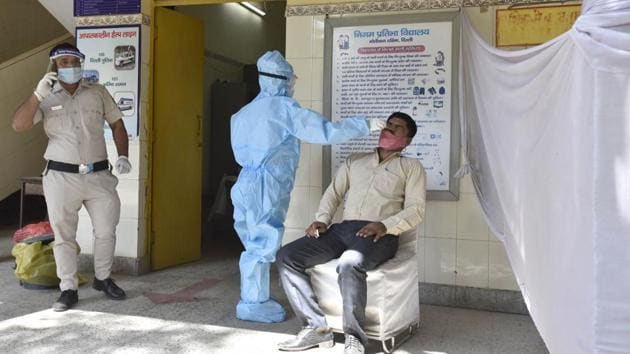The impact of Covid-19 on state economies
Beyond the national level, however, we are keen to understand how state economies are doing. It might be a while before the data on state economies becomes available, so we used micro-data from the Google mobility report to analyse contractions in economic activity across states
An unfortunate consequence of Covid-19 is the adverse impact on the economy. India’s economy contracted by 23.9% in the first quarter of the fiscal year, according to data from the government. It reveals that all sectors of the economy, except agriculture, shrank in the first quarter. Beyond the national level, however, we are keen to understand how state economies are doing. It might be a while before the data on state economies becomes available, so we used micro-data from the Google mobility report to analyse contractions in economic activity across states.

We studied trends in the retail and recreation sector such as visits to restaurants, malls, commercial centres and so on to gauge the impact of Covid-19 on economic activity. The analysis reveals an overall sharp contraction of approximately 38% that still prevails across India, compared to the period prior to Covid (January 3 to February 6). The time trend shows an immediate decline of more than 75% as soon as the national lockdown was imposed and a further decline to approximately 85% by the end of April. The revival since has been slow and varied across states. Nevertheless, all states have experienced a severe contraction in mobility trends suggesting a sharp decline in economic activity. The biggest decline has been in states such as Manipur, Goa, Nagaland, Mizoram and Maharashtra while the least has been in Bihar, Uttarakhand and Uttar Pradesh.
A natural hypothesis is that the extent and severity of the infection within a state would determine the magnitude of its economic slowdown. So we studied the relationship between Covid-19 prevalence (cases per million in the state) and severity (deaths per million) within a state and the economic contraction there. It is interesting to note that there is no discernible relationship between infection in a state and the decline in economic activity measured by mobility. It is puzzling to see states like Manipur, Nagaland, Mizoram and Kerala witness a big decline in economic activity while the prevalence and severity of the infection remain low.
Among large states, the biggest economic contraction is in Maharashtra. This is not surprising given the status of the infection in the state which is growing. Maharashtra has five districts within the group of the worst 10 affected districts in the country. If we proxy the government’s effort by the extent of Covid-19 testing, then Maharashtra has consistently reported the highest test positivity rate (TPR) in the country. The latest statistics show that this might worsen further. High and rising TPR indicates that the infection is way ahead of our knowledge from testing, as a larger fraction of cases is positive for every 100 tests. Against this reality, the performance of poorer states like Uttar Pradesh and Bihar become noteworthy because they have maintained their TPR well below the World Health Organization prescribed benchmark of 5%. What remains a concern, however, is the growing share of antigen tests compared to the more reliable RT-PCR tests across states. In a meeting with the chief ministers of the seven biggest Covid-19-afflicted states, Narendra Modi stressed on increasing RT-PCR tests and emphasised on conducting follow up tests for all people who tested negative through the antigen tests.
The policy implications from these empirical trends speak to health governance and the impact on the economy. Never before has the federal structure of health governance had such a profound bearing on India’s economy. Poor Covid-19 management in an economically-strategic state like Maharashtra affects the overall national fight against the virus and frustrates attempts at economic revival.
A big decline in economic activity in states where the pandemic has been relatively muted in prevalence and severity also highlights the role of dispelling fear and panic among people. Until a vaccine becomes commonly available, we will have to learn to live with the virus. A low middle-income country like India cannot afford to be petrified into economic inaction. The Centre must take a leadership role and ensure better Covid-19 management — starting with Mumbai and Delhi. One can begin with the simplest policy objective of ensuring a minimum test positivity rate and share of RT-PCR in testing composition within these Covid-19 hotspot cities.
India needs to reboot its Covid-19 strategy — for the sake of its economy. The pathway to economic recovery lies through the health care sector and collective Covid-19 management. Data shows that economic recovery has been higher and faster in several European countries struck by the pandemic in the summer months earlier this year. India, with a much lower mortality rate, continues to struggle with slow economic recovery. We need more confidence-building measures to overcome this. Data suggests that India has a high Covid-19 recovery rate and a majority of infected people are recovering at home with minimal intervention.
The most credible strategy for economic recovery is easy access to Covid-19 testing and when required, easy access to hospital beds. This will dispel the widespread fear among people and help in boosting the economy. Without this, India’s economy will experience prolonged uncertainty and, therefore, a slow recovery.



